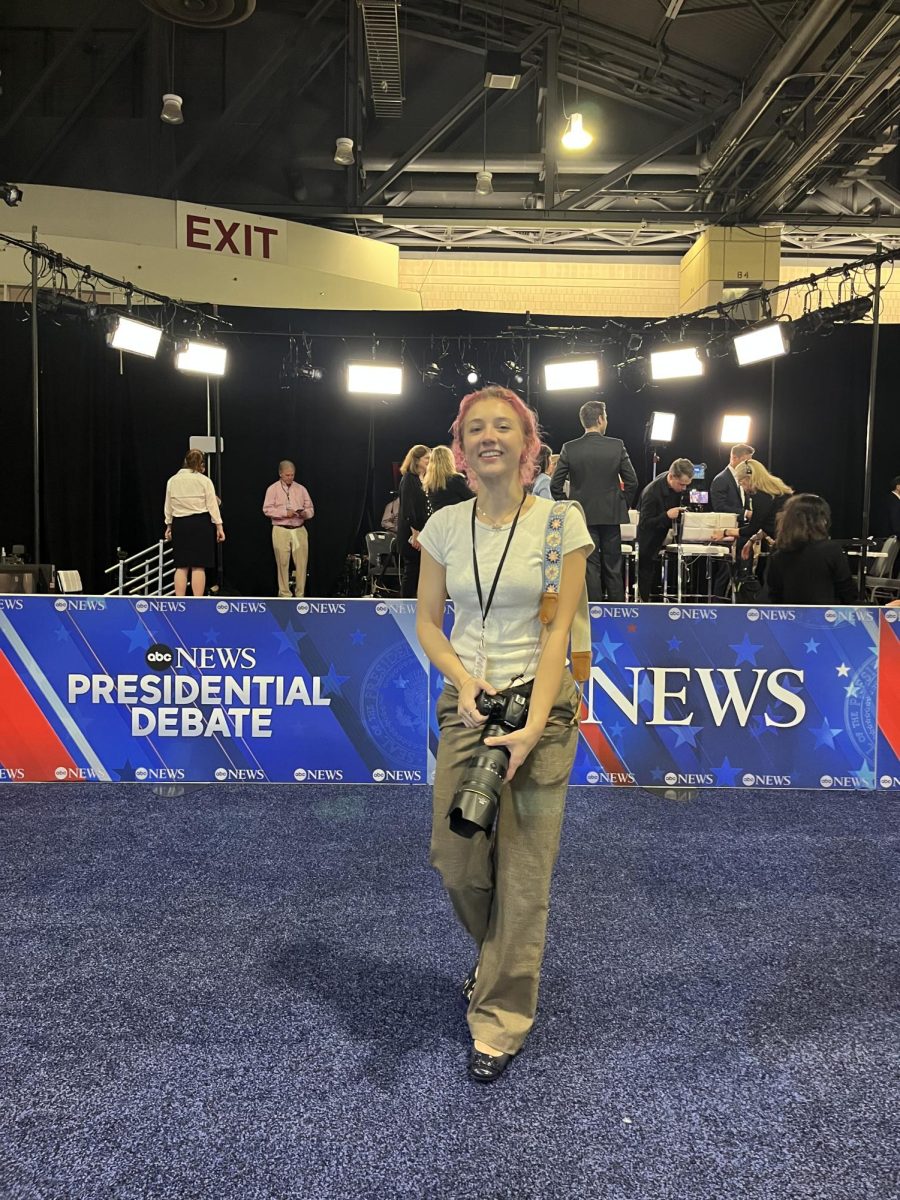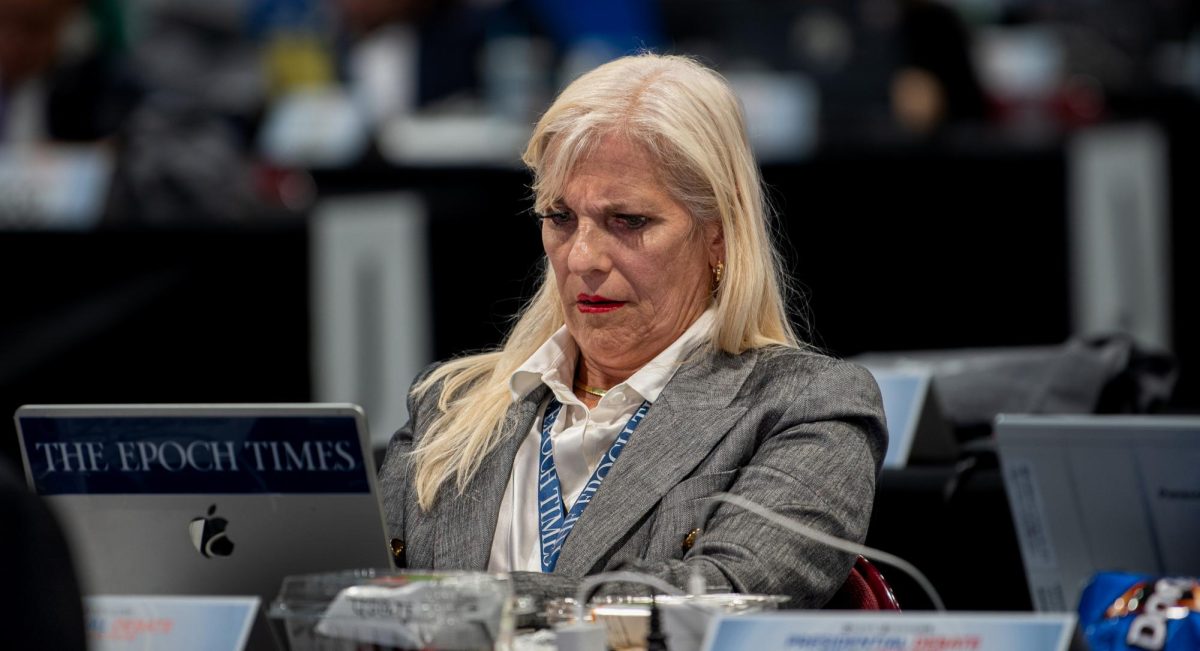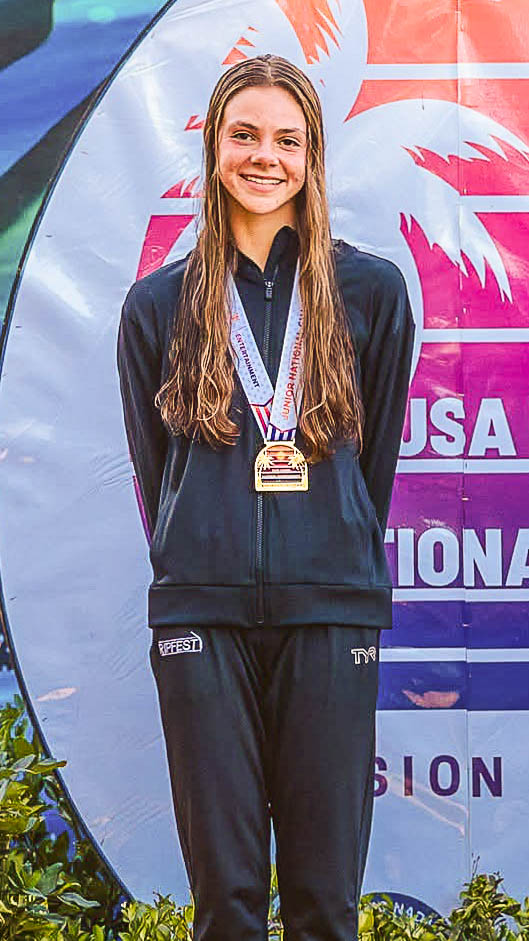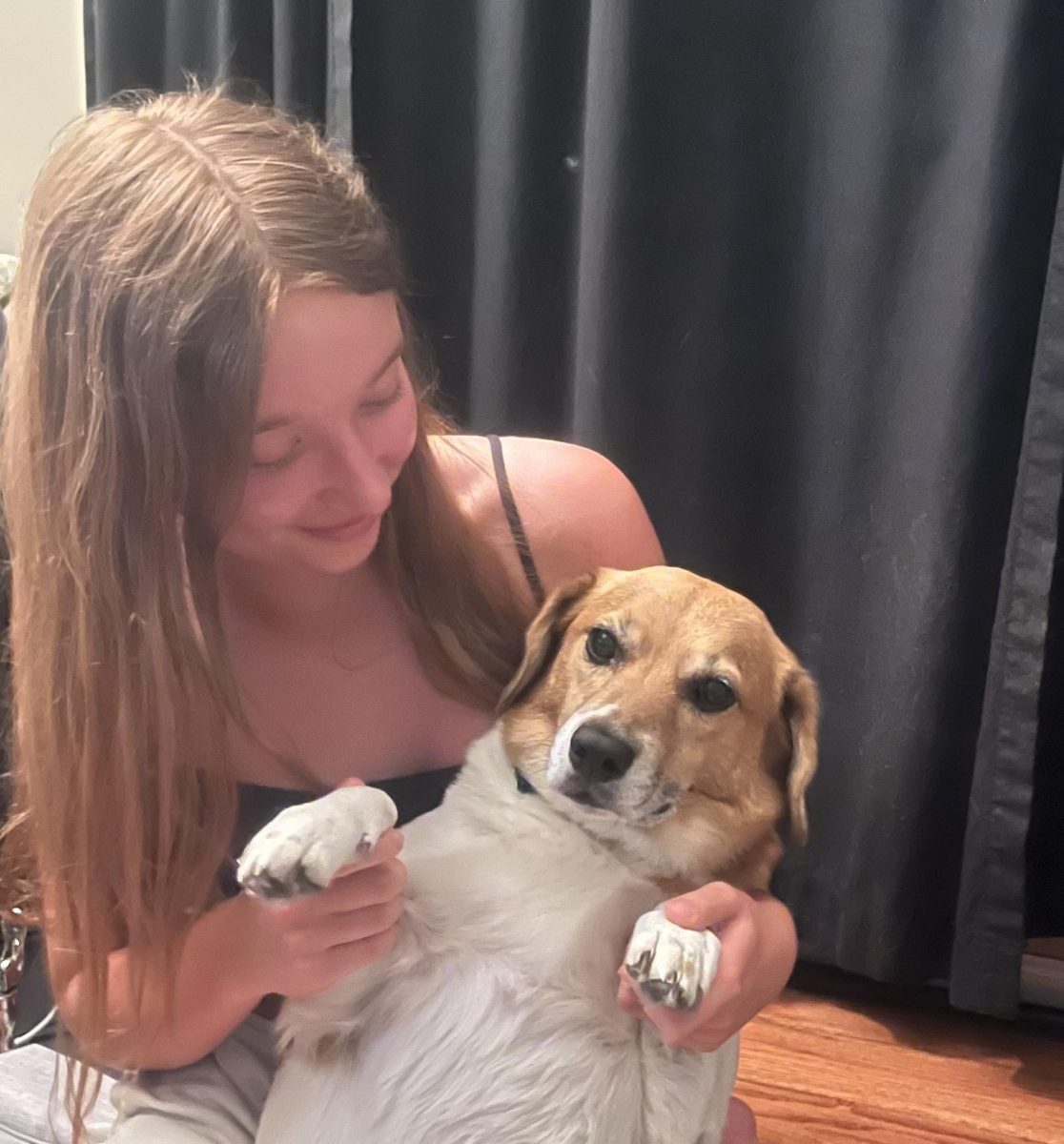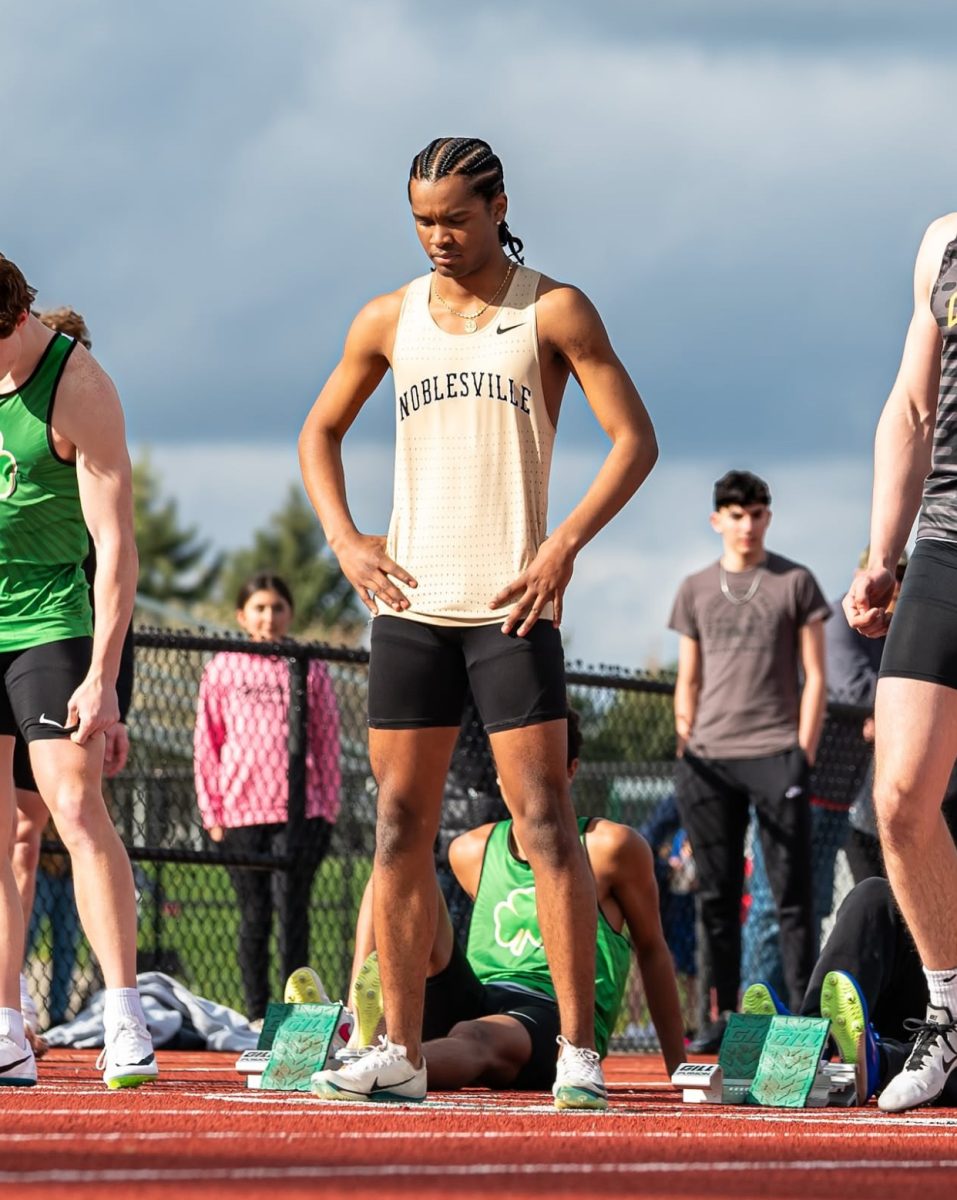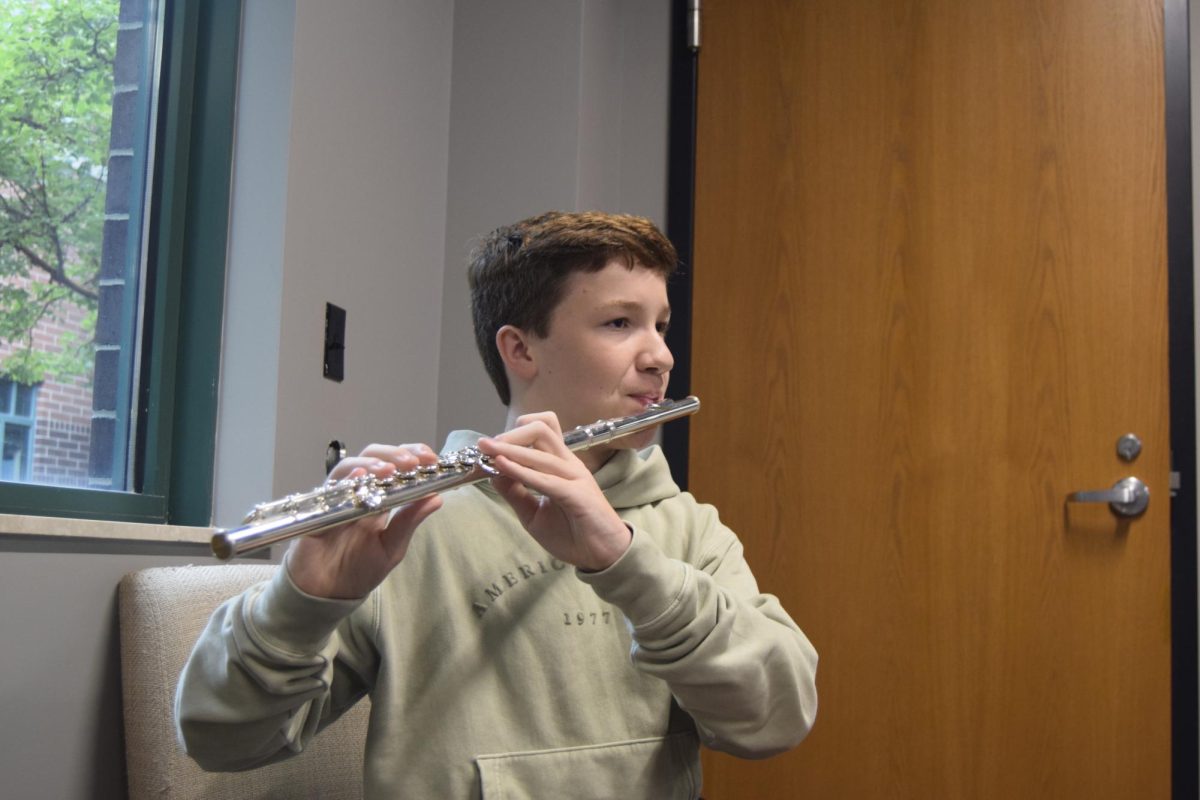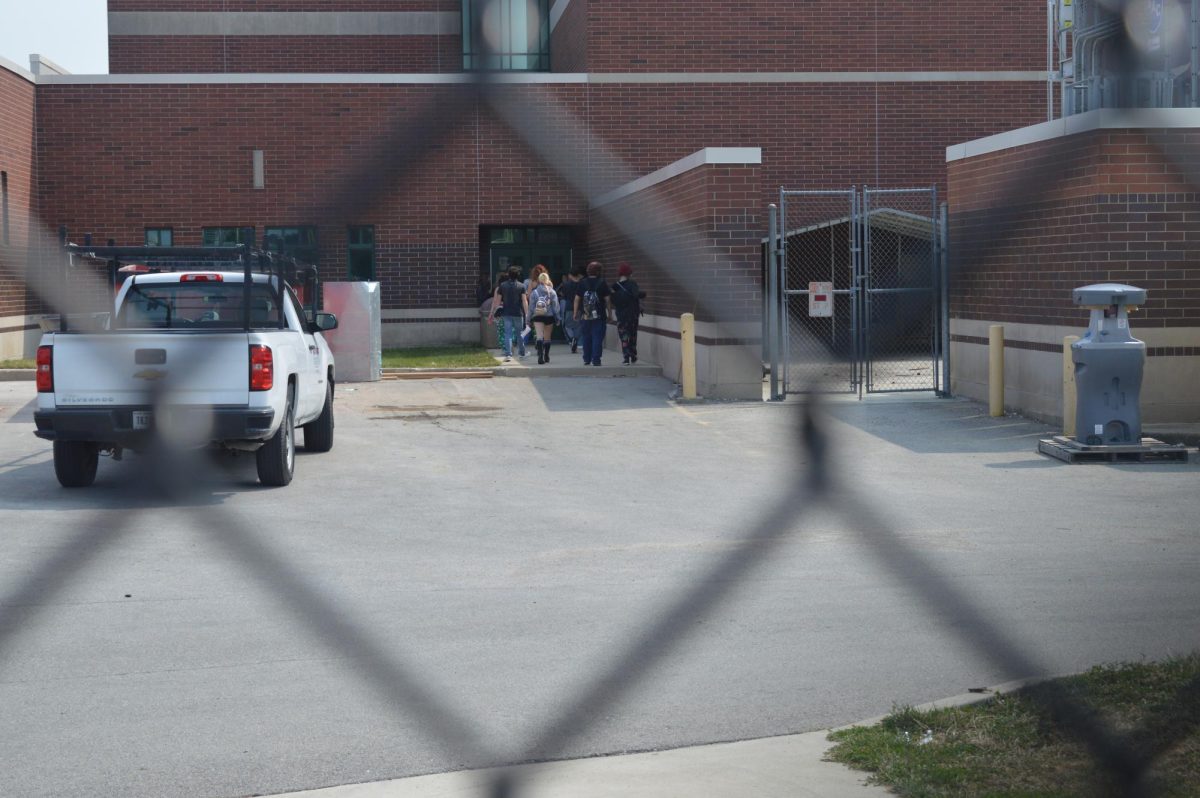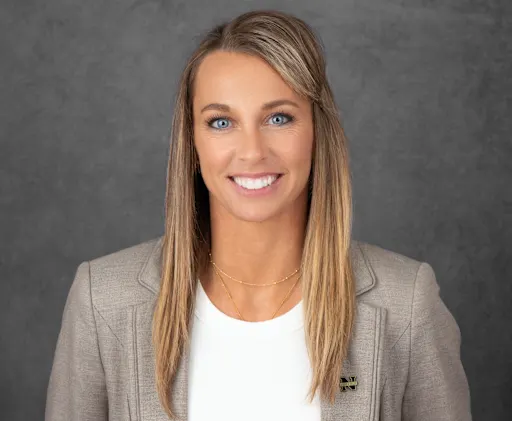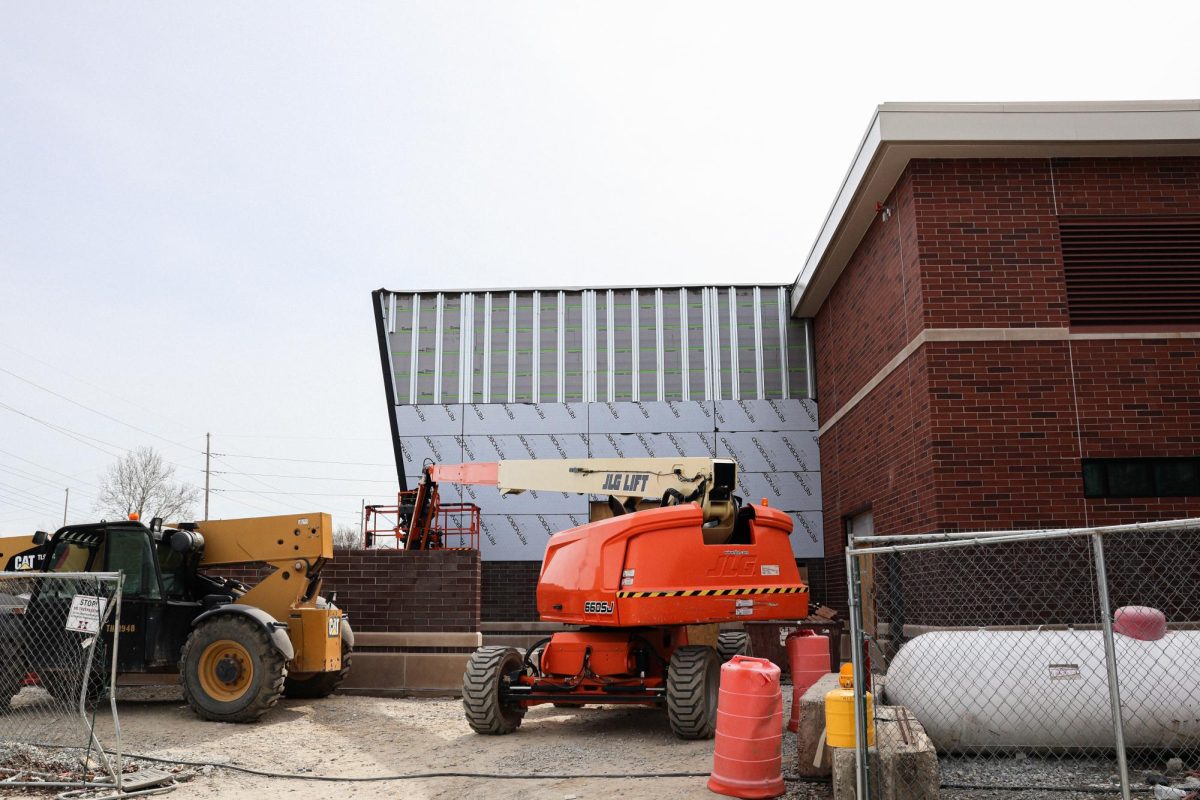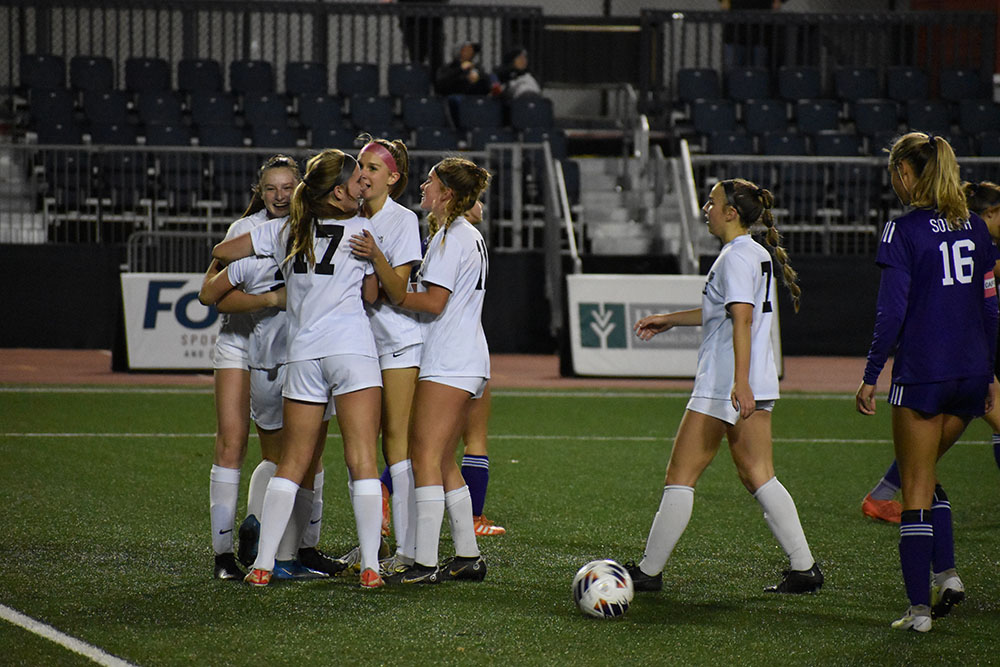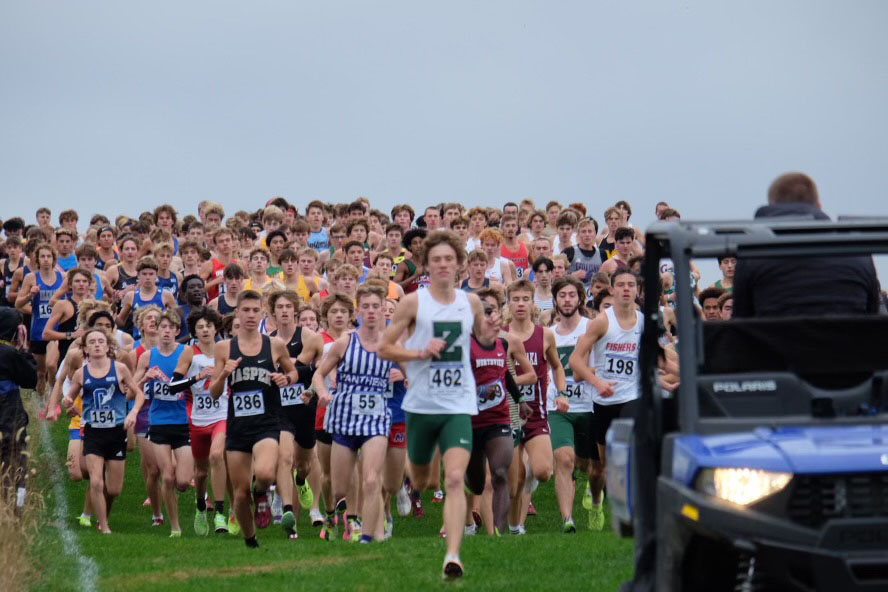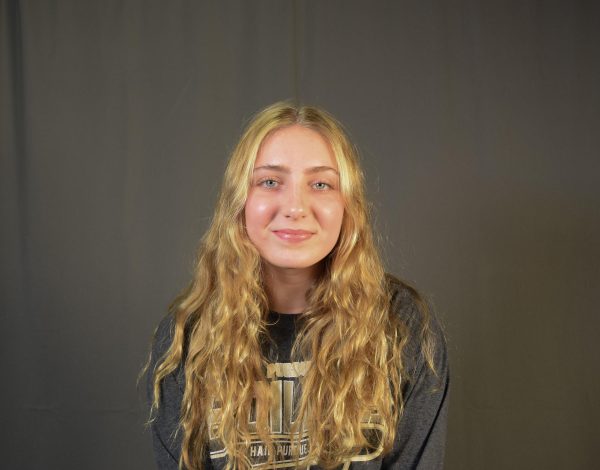Mill Stream Photo Editor and NHS News broadcast journalist senior Lily Ferazzi had a front row seat to Tuesday’s presidential debate. Ferazzi was credentialed through ABC News and watched the event from the main press room alongside hundreds of other journalists from around the world. Mill Stream Editor-in-Chief Maddie Smith sat down to talk to her about her experience at the biggest political event of the year.
Mill Stream: What did you do when you got to the presidential debate?
Ferazzi: Nobody was allowed at the debate, so I was a block away with the rest of the media. I got there and had to go through a lot of security before I could get my credential. From there, I got into a big room with hundreds of other journalists. Around the outline of the center there were different outlets and news stations from all around the world. I think it was 50-50 of people from the United States vs from other countries.

Mill Stream: What was the atmosphere like?
Ferazzi: It was really amazing. I felt likeI was with my people. Even though there were so many different ages from college students to people who were probably in their 70s, we were all there for the same reason. It was great because everyone was there to know things and get a better understanding. There was no discourse or argument over political affiliation, everyone was just trying to do their job.
Mill Stream: What was your favorite part?
Ferazzi: The coolest part that stood out to me was the amount of freedom I had. I was able to get in there, and I had to go through security each time I arrived or left. I walked around Philadelphia with my camera looking for protests and people that were coming in and out. I was wearing my business-casual outfit, and I had my camera and credentials. I felt like an adult, and it was a sneak peak into what I want my career to be in the future. It was almost exhilarating.
Mill Stream: Walk us through your day.
Ferazzi: On Monday I flew to Philadelphia and stayed with family. Tuesday was the debate and I left at 3pm and got to the convention center. I took my photos and watched the debate, and then we went to the spin room which was the most exciting part of the night, when Donald Trump came into the spin room. The spin room comes from how journalists can spin the story and ask specific questions about the story they want to get. Everybody who has credentials has access to it. Donald Trump came in, which was a unicorn moment, because presidents don’t usually do that. He didn’t perform as well as he probably thought he did, which is why he came into the spin room to clear some things up. After that happened, I spoke to a couple other people such as Representative [Veronica] Escobar from the Harris campaign. I met some college kids that were pretty cool, and I’m pretty sure I was the only high schooler there, which was insane. Then after all that I probably didn’t get home until 2:30 in the morning.
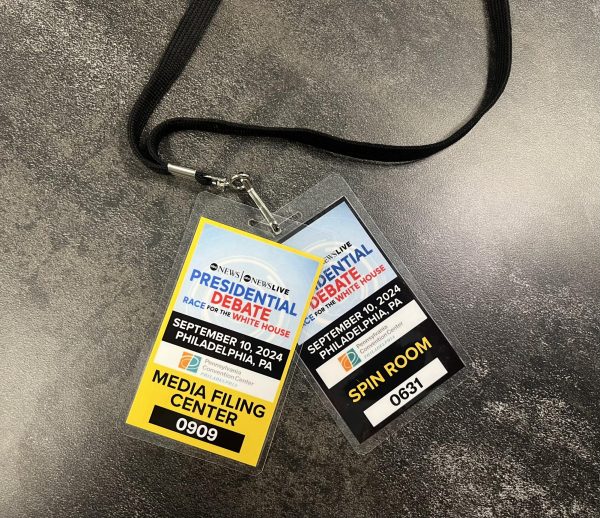
Mill Stream: What was the interview process? Who did you look for when going to talk?
Ferazzi: In the spin room, there are usually a couple of people who are with the person being interviewed. One of those people has a sign with the interviewee’s first name small and their last name big, so that journalists and reporters can see. Sometimes you had to wait. For Representative Escobar, that was at the end of the night. So I shook her hand and spoke to her, and I said I was a student journalist in high school, and want to ask about student voting. So I just talked about voting for ages 18-24 and how there needs to be an increase in that. She was really great and gave me a really thoughtful response. There were some people who were getting interviewed by bigger news stations, and for example one person was yelling at a reporter who was asking questions. To be fair, the reporter was egging him on trying to get an answer, but that is no reason for someone to yell at a reporter.
Mill Stream: How did you get the credentials?
Ferazzi: I am student board president of the Indiana High School Press Association, and I had a meeting where one of the advisors from another school mentioned how he got DNC credentials for a couple of his kids. The DNC is a way bigger thing than the debate, and I didn’t realize that until after. So I was like, okay, there’s a presidential debate coming up, let’s see if I can get credentials. I emailed the debate hall and asked how to get media credentials. I said I was a high school student and very passionate about journalism. They put me on the ABC mailing list, and they emailed me a couple days later, and it was a credential form. I filled it out and said my position, what organization I was a part of, and what I would be doing. They got back to me a couple days after that, which was two days before the debate, which was kind of stressful. We were able to do it, I’m really grateful for my parents and they are very supportive. My dad flew with me, but I got dropped off alone at an apartment complex a couple blocks away from the debate, and had to walk because streets were blocked off.
Mill Stream: What was your passion for this, and where do you want to take it in the future?
Ferazzi: I am very politically inclined, and have been very conscientious of politics in the United States and around the world. It used to be a facet of liking to argue with people before, and I started to learn that’s not the best way to go about things. The best way to get more knowledge is to just understand people and talk to people, which is one of the main reasons I wanted to do this. Being a journalist means you’re supposed to be neutral, and that is a really good lesson I feel like everybody should learn. Even though a lot of the journalists who were there had very similar opinions to mine, it was still really interesting to hear other people’s point of views and to gauge what it is actually like to be a journalist or a reporter



